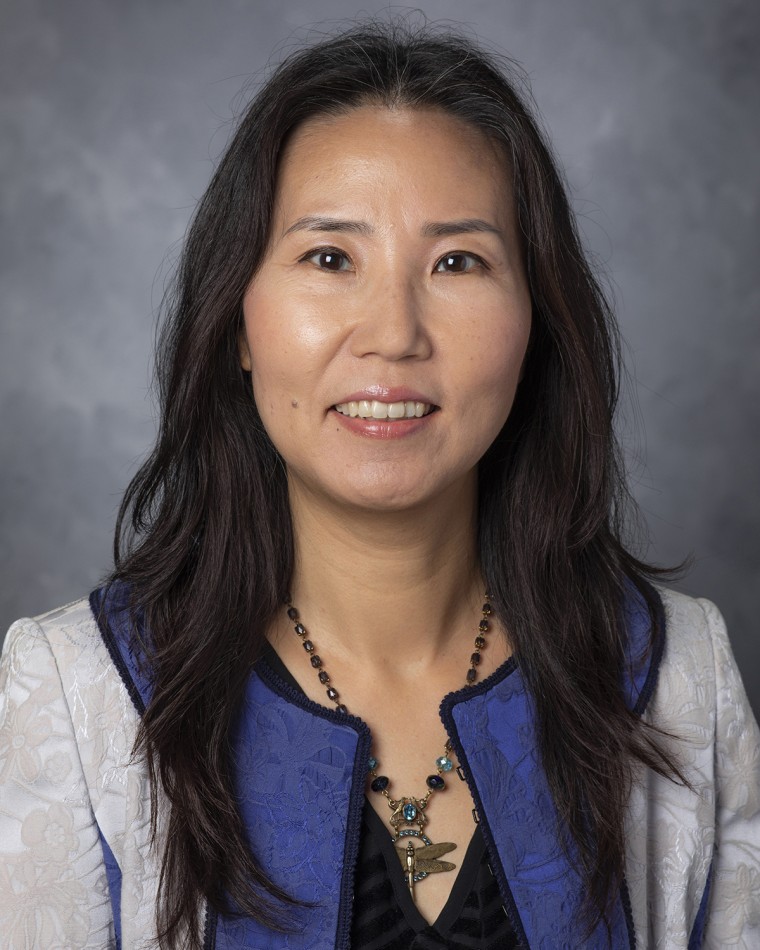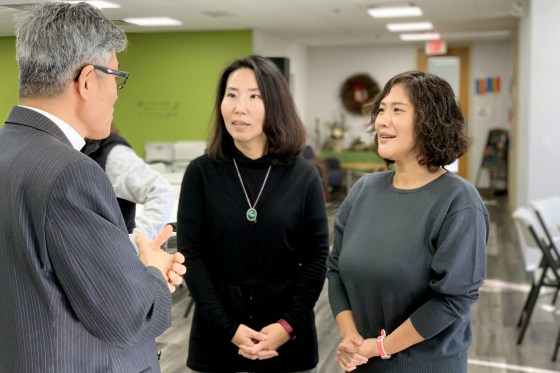For much of the past two decades, Joon Choi has been working on a training program she believes can change harmful social norms around domestic violence in the Korean American community.
During her long career as a social worker, she noticed that many immigrant women, burdened by the shame and stigma associated with abuse, seek help first from their pastors.
More than two-thirds of Korean Americans, who make up 10 percent of the Asian diaspora, are Protestant Christians, according to a 2012 study from the Pew Research Center, and churches play a central role in Korean American communal life. For many domestic violence victims, especially more recent immigrants far removed from their friends and families in Asia, the church can feel like a refuge.

Yet, few pastors know how to deal with domestic violence situations, Choi said. And an entrenched conviction in the sanctity of marriage — and the power of “spiritual strength” to overcome hardships — have often led them to dismiss the danger that some of their congregants face, or worse, to resort to victim blaming.
“That’s when I started wondering: What’s going on with our faith leaders?” Choi, an associate professor at the University of Georgia’s School of Social Work, told NBC Asian America. “How can we work with the faith community to address this problem?”
In 2018, she began collaborating with colleagues on a virtual case simulation module to help faith leaders become empathetic advocates for survivors. The online course challenges pastors to change their thinking about the nature of intimate partner violence and reckon with the danger that women in abusive relationships face.
In one of the course’s simulated scenarios, pastors have to choose between three responses to a congregant who confides that she’s been abused. They can encourage her to share her experience (“I’m so glad you came to me. Let’s talk about it”), spurn her (“I do not believe your husband would do that to you”), or deflect responsibility (“You should talk to a counselor”). After selecting a response, they will then learn why they should choose the first option, validating a survivor’s ordeal, over the other two.
“We want to communicate to faith leaders that the goal should always be to promote safety,” Choi said.
Over the past three years, more than 100 pastors from Chicago and Washington, D.C., participated in the program known as Korean Americans for Healthy Families, which was supported by a half-million dollar grant from the Department of Justice Office on Violence Against Women.
Late last year, the project received another round of funding from the agency to expand its ambitions. The goal for the second phase, Choi said, is to train a wider range of faith leaders, including lay leaders and pastors’ wives, and to create a communication campaign that distributes in-language resources in Asian immigrant communities.
Choi said she became invested in gender issues while growing up in South Korea in the 1980s, which was undergoing rapid modernization that ushered in unprecedented economic opportunities for women — but little advancement in workplace rights or a reversal of the subservient roles they were expected to perform at home.
“I wasn’t happy with how society was structured for us,” she said. “We weren’t getting the same opportunities as men but were still expected to excel in school and get jobs and become super moms.”
After moving to the United States in 1993, Choi channeled her passion for advancing women’s rights into helping victims of domestic violence, which she considers the “most extreme form of oppression against women.” For 25 years, she worked as a counselor and advocate at Womankind (then known as New York Asian Women’s Center), which founded the country’s second domestic violence program for Asian immigrants.
To recruit pastors for her training program, Choi enlisted the help of two prominent Korean-led social services organizations: the Virginia-based Korean Community Service Center and the Chicago-based KAN-WIN.
Ji-young Cho, the executive director of Korean Community Service Center, said Korean immigrant women face a host of cultural barriers to reporting and seeking treatment for intimate partner violence. (The center operates a 24-hour domestic violence hotline as well as in-language counseling, legal assistance and a range of other victim services.)
“The first issue is that Korean culture is patriarchal, which means the wife is expected to defer to her husband,” Cho said. “There is a lot of stigma around talking about the issue because it would be shameful to expose an incident to the outside.”
These barriers can become more pronounced in times of crisis. When much of the country went into lockdown in the early months of the Covid-19 pandemic, domestic abuse calls surged in Asian immigrant communities.
Ji-hye Kim, the executive director at KAN-WIN, said the group’s services are open to everyone, but clients who receive long-term treatment are overwhelmingly low-income immigrants who speak limited English and experience immigration issues.
“In many ways,” she said, “this project helped break the taboo of domestic violence and allowed us to start normalizing talking about it in terms of prevention and education.”
Both Kim and Cho, of the Korean Community Service Center, said they’ve noticed a significant difference in the way pastors now address the problem of domestic abuse. Rather than pushing survivors to save their marriages at all cost, they said, faith leaders are now more likely to support separations and proactively connect congregants with community resources. Some even feel comfortable enough to address the issue of domestic violence in sermons.
But education is just a first step, they said. Creating effective prevention and intervention methods at scale requires a paradigm shift.
“We need to focus on the fact that domestic violence is not a cultural matter or a private matter,” Cho said. “It’s a crime. No one deserves to be battered.”
